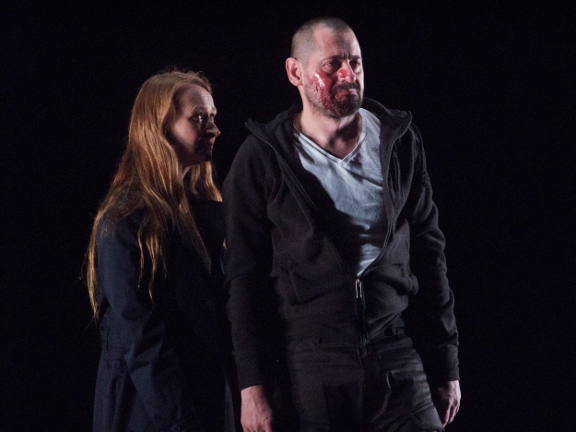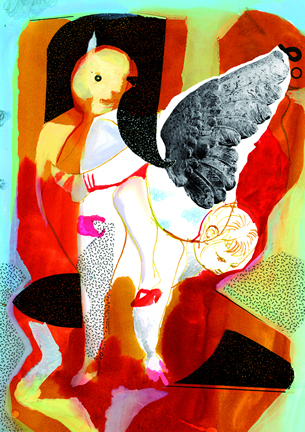…and let him renounce his love for humanity!
Aeschylus
On the distant borders of Scythia, in a wild and deserted place, a being bound in chains refuses to speak. Presently, once Prometheus has been left alone, he will cry out to the elements: “Divine ether and wild winds, / rivers’ sources, the roaring laughter of the sea, / and you, the Sun, all-seeing globe!” But for now, he holds his tongue, not deigning to reply to the insults heaped upon him. He is escorted by two deities, Kratos and Bia, the Force which speaks and ever-silent Violence. The divine blacksmith, Hephaestus, reluctantly prepares to carry out his father’s orders, for it is the will of Zeus that “he who thinks ahead”, Prometheus, atone in solitude for his excessive love for humankind (in verse 11, from the mouth of Kratos, we can find the earliest use in extant Greek literature of the word “philanthropist”). Can a new regime not be founded without brutality? Zeus’s rule is inaugurated with an arbitrary exercise of power. All those who opposed him, even the formidable Titans, have disappeared – with the exception of Prometheus, who is displayed before humankind and the Gods, as both a terrible warning and a spectacle to delight his enemies. But if the King of the Gods turns his back on justice, for how long can he hope to reign? During his time at the Théâtre de l’Odéon its current director will have tackled the complete surviving works of the first great tragedian. Py has chosen Prometheus Bound to close the cycle of plays which opened with the Oresteia. The Gods do not appear in visible form in any of the other surviving plays: it is only in The Eumenides, the final play of the Oresteia, and in Prometheus Bound that divine beings take to the stage. Indeed, in the latter of these two tragedies human beings are completely absent from the stage, which is solely peopled by Immortals. Nevertheless, absent humanity casts a long shadow over proceedings: the new King of the Gods, Zeus, has condemned Prometheus to be chained to a rock in the Caucasus, on the very edge of the Cosmos, where a vulture will come each day and eat his liver. Zeus devised this punishment because the Titan dared to steal some glowing embers and make a gift of them to Humankind, along with a spark of intelligence, so that humans could not merely survive, but also be able to pay grateful homage to the Gods… How can the world be divided between mortals and immortals? At the end of his journey through the poetry of Aeschylus Olivier Py arrives back at this question, which justice still continues to pose.
Cast
from Aeschylus
directed by Olivier Py
February 14th – 19th, 2012
Ateliers Berthier / 17e
French Translation and adaptation by Olivier Py
Scenography and costumes : Pierre-André Weitz
Lights : Bertrand Killy
Sound : Thierry Jousse
With Céline Chéenne, Xavier Gallais, Olivier Py
production Odéon-Théâtre de l’Europe
,



